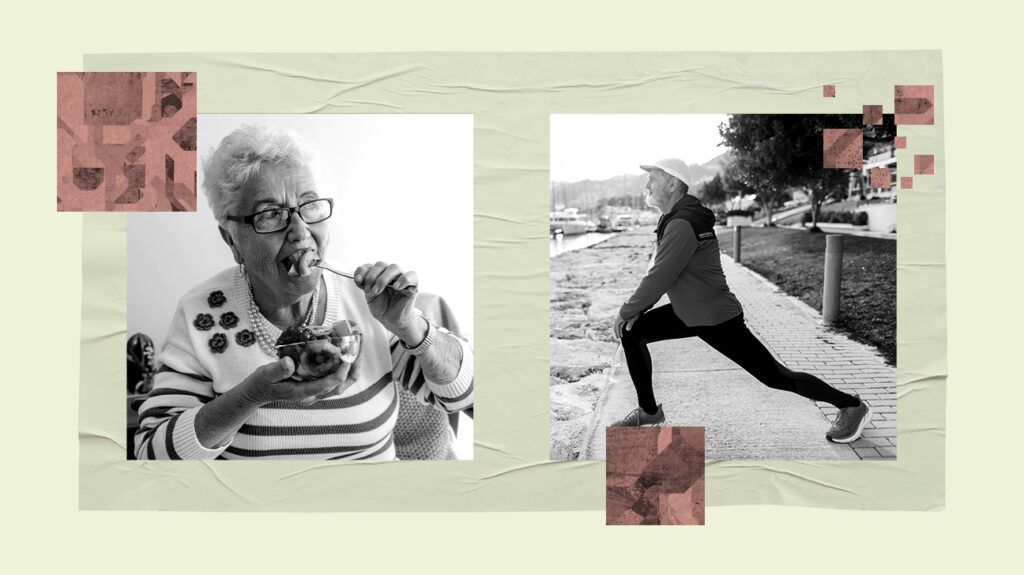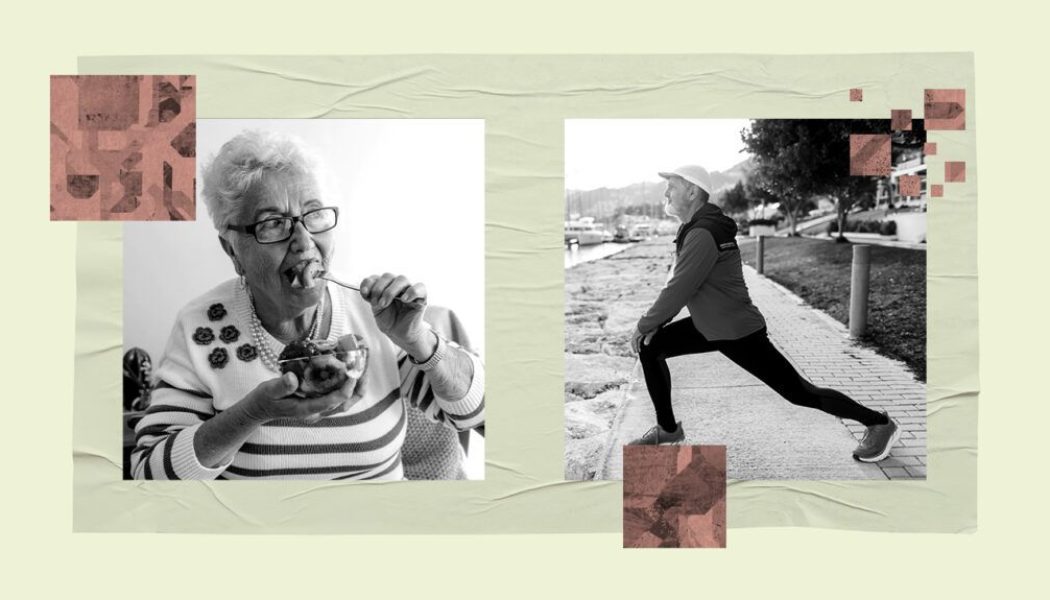
- Researchers say living a healthy life after age 80 improves a person’s chances of living to 100.
- A healthy diet and regular exercise are important components of such a plan.
- Experts say it’s never too late to start living healthy.
A
Researchers in China evaluated 1,454 centenarians and 3,768 people who died before reaching 100 years old.
They reported that the participants with the highest healthy lifestyle scores – based on smoking history, exercise routines, and dietary diversity – had a significantly higher likelihood of living to 100 compared to those with the least healthy lifestyle behaviors.
Researchers said their findings suggest that healthy habits even at an advanced age can have life-prolonging benefits.
The scientists said previous studies reported lifestyle factors contributed to longer life, but most of them looked at midlife groups no older than 60. Few focused on people 80 years or older.
The researchers used data from the Chinese Longitudinal Healthy Longevity Survey, established in 1998 and considered nationally representative and one of the largest prospective cohorts targeting people aged 80 years or older. Data from the community-based, prospective nested case-control study was analyzed from December 1, 2022, to April 15, 2024.
The team ranked healthy lifestyle scores from 0 to 6, with higher scores indicating potentially better health outcomes. Researchers said those with higher scores were more likely to reach 100.
The participants who scored in the 5 to 6 range lived the longest. In fact, 276 of 851 individuals among the highest (5-6) group became centenarians. Those scoring in the 0 to 2 range lived the shortest amount of time.
The team said in a release that “with major progress in social, economic, and medical development, life expectancy at birth increased substantially in recent decades and was estimated at 73.5 years globally and 77.6 years in the mainland of China in 2019.”
“Parallel with the increased life expectancy, the aging population has been rapidly expanding, raising the public health challenge of promoting healthy aging and longevity,” the researchers added.
Dr. Scott Kaiser, a geriatrician and the director of Geriatric Cognitive Health for the Pacific Neuroscience Institute in California, told Medical News Today that it’s still rare to live to 100.
However, he said people’s chances are increasing as people understand better living means a longer life.
“There’s definitely value in aiming for the 100 year-plus target,” Kaiser, who was not involved in the study, said. “Striving to lead a long life may lead to making healthy choices — recognizing the many things we can do to drastically increase our odds of living longer and putting effort into making these positive changes to our behaviors and, even, mindset.”
Kaiser said aiming to live longer also means aiming to live better.
“At the same time, many of these things that are likely to pay off a longevity dividend will also likely increase our health span — the time that we’re free of major disease, healthy, and generally thriving,” he noted.
Kaiser said keeping your body in good shape is like taking care of a car.
“Much like a car you’re hoping to keep on the road, if you take care of your body as if you’re going to need to for 100 years, you’re far more likely to achieve your healthy longevity goals,” Kaiser said.
Joy Puleo is the balanced body education director at the health site Balanced Body.
She said there are five key ingredients for longevity in life over 80: Get your blood pumping, strength training, be mindful with practices like yoga and tai chi, work o physical balance, and “move for the fun of it.”
“We spend a lot of time getting prescriptive but finding ways that work for you, that move you, literally, and that you enjoy engaging in… now that is a recipe for program adherence and creation of habits that will make a difference,” Puleo, who was not involved in the study, told Medical News Today. “From tango to boxing and everything in between… putting yourself first, setting time to create movement opportunities that you enjoy… this is what will train the body, sooth the mind and feed the soul.”
Puleo added that nutrition is important.
“Eat food, healthy food, and not too much… do this most of the time and you have a recipe to create a healthy platform. Avoid processed foods, sugary foods and eat for your health,” she said.
Puleo also said it’s important to prioritize yourself, make sure to keep moving, and get enough sleep.
“Remembering that this is an opportunity to create who you want to become both physically and emotionally, and exercise can play a big role in what that looks like,” Puleo said.
Dr. Snehal Smart, the patient advocate with The Mesothelioma Center at Asbestos.com, said making lifestyle changes at 80 can be difficult.
“Even with small lifestyle changes and steps toward healthier living, individuals may be able to improve their chances of living to 100,” Smart, who was not involved in the study, told Medical News Today. “Some of these lifestyle changes include those we’re likely already familiar with, such as eating a healthy, well-balanced diet and getting enough regular exercise. Some foods that have been known to boost longevity and promote a healthier, longer life include leafy greens, root vegetables, fruits, whole grains, healthy fats and lean proteins. In regard to exercise, going on a short walk or doing seated exercises each day can be great options for older adults to help with their longevity. If the older adult is mobile, volunteering at the local library or hospital may also help keep them active.”
Smart said 80 is not too late to quit smoking and start exercising the brain.
“This can be achieved by doing word puzzles and crossword searches, which can help keep the brain active. To manage stress, practicing meditation or yoga – for active seniors – can be beneficial. Some studies have also shown that elderly individuals who spend time with their grandchildren or take care of pets may also live longer and healthier lives,” she said.









